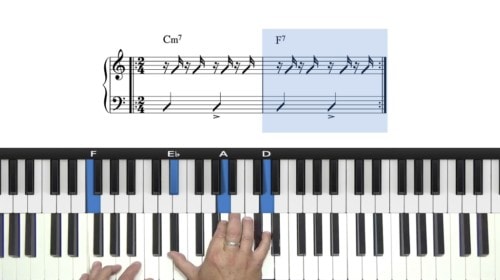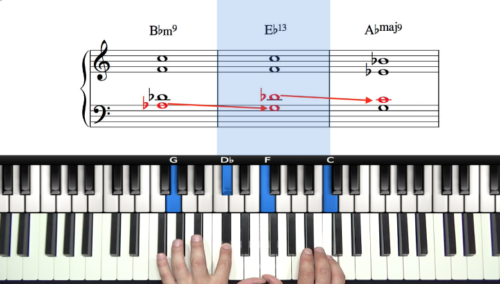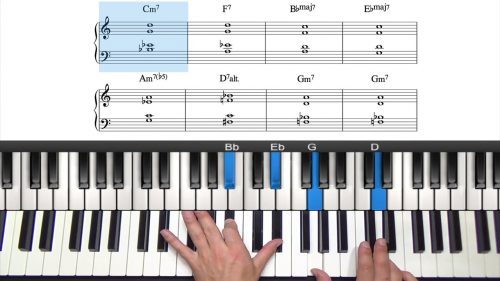Minor 251 Comping Ideas
In this short masterclass I’m going to show 3 simple ideas for comping over a minor 251 that you can practice, modify and add to your own playing.
For me, comping consists of 3 different elements. In the of importance they are: rhythm, melody (the highest note in the chord) and voicing.
Rhythm is the most important, as you have to be integrated with the rhythm section or be responsible for the time, for example, in a duo setting.
The melody note is the second most important as it brings the music into the comping and will support and maybe even inspire the soloist. It doesn’t have to be anything special, just a good logical melody or good voice leading .
The examples are in the key of Fm, but it’s good practice to learn these examples in every key. In certain keys the same voicing might be too low or too high play. In these situations, I would change the voicing so it works better for the range that you are in.
Lesson Downloads
-
Minor 251 Comping Ideas Lesson Notation File Type: pdf
Practice Tips
-
These ideas are presented in the key of Fm but it's important to be able to play these examples in all 12 keys.
-
Choose one of these examples and apply it to a tune that you know. It may seem mechanical but it's good practice to play the example in every 251 situation in the tune.
- Try creating your own variations of these ideas. Take the rhythm and apply different voicings to it or, conversely, take these voicings and apply different rhythmic ideas to them.





